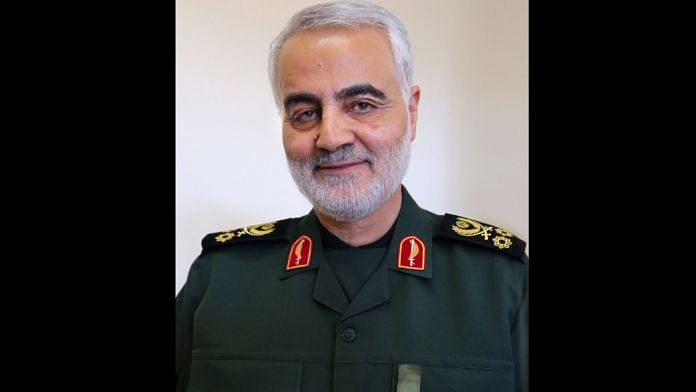New Delhi: Iran launched missile attacks on two Iraqi military bases Wednesday, which housed US forces, in retaliation for the killing of top Iranian military general Qassem Soleimani.
More than a dozen rockets were fired at the Ain al-Asad base in Iraq’s Anbar province and at a base in Erbil.
After Iran’s state media reported the attacks, the country’s foreign minister Javad Zarif took to Twitter and called it “proportionate measures in self-defence”.
“We do not seek escalation or war, but will defend ourselves against any aggression,” added Zarif.
In response, US President Donald Trump tweeted, “All is well! Missiles launched from Iran at two military bases located in Iraq. Assessment of casualties & damages taking place now. So far, so good!”
No clarity on casualties
There are no official confirmations about the precise number of casualties following the Iranian missile strikes. According to CNN, no US casualties have been reported.
However, Iran’s state media claimed that the 15 missiles that were launched by Iran had killed at least 80 “American terrorists”.
Iraq also hosts forces from other coalition (against the ISIS) countries such as Denmark and Canada. Officials from both the countries have confirmed that none of their soldiers were killed during the strikes.
Restrained response
Several analysts argued that the responses by both Trump and Zarif have been relatively restrained.
“‘All is well!…So far so good!’ – Trump tweets on the Iranian missile attack on Al-Asad airbase. Pentagon officials have gone home. We are still not looking at a major escalation,” tweeted Liz Sly, the Washington Post Beirut bureau chief.
Security analysts working on Iraq, maintained that the two targeted military bases — in Anbar and Erbil — house more Iraqi troops than the American ones. Moreover, these missile strikes might have been intended for retaliation without the risk of conflict escalation.
Negar Mortazavi, an Iranian journalist who works for The Independent, argued that given Iran had to respond “one way or the other”, it was a largely “symbolic” attack.
“Iran’s leadership did not know what Trump’s red lines were before the US assassination of Suleimani. They literally had no idea. And they were testing it. They now know. That’s broadly de-escalatory,” tweeted political scientist Ian Bremmer.
Though not all analysts seem to agree that the US-Iran escalatory pattern might be approaching an end. Journalist Yashar Ali, who covers Iran, argued that Tehran views “revenge” as a generational thing and often responds over time.
“If people think that this is it…that Iran has chosen to retaliate against the US for killing the second most powerful man in Iran, by lobbing some missiles across the border that didn’t result in US casualties then I have a bridge to sell you,” said Ali.



